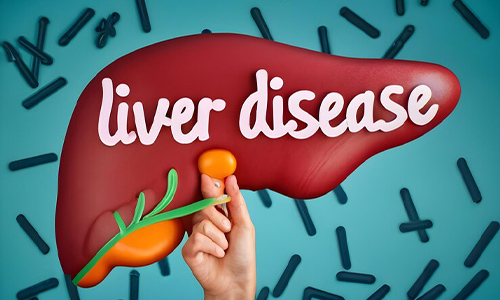Liver disease is a serious condition that can have a significant impact on your health and wellbeing. Understanding the signs and symptoms of liver disease is crucial for early detection and treatment. In this article, we will explore the various indicators that may signal the presence of liver disease.
What are the common signs of liver disease?
- Jaundice: One of the most prominent signs of liver disease is jaundice, which causes your skin and eyes to turn yellow. This occurs when there is a buildup of bilirubin in the blood due to liver dysfunction.
- Fatigue: Feeling constantly tired or fatigued is another common symptom of liver disease. The liver plays a vital role in energy metabolism, so when it is not functioning properly, you may experience low energy levels.
- Abdominal pain: Liver disease can cause pain and discomfort in the upper right part of your abdomen. This pain may be dull or sharp and can worsen after eating fatty foods.
- Swelling: Liver disease can lead to the accumulation of fluid in the abdomen, known as ascites, or in the legs, called edema. This swelling is due to decreased liver function and increased pressure in the blood vessels.
How does liver disease affect your overall health?
Liver disease can have a profound impact on your overall health and wellbeing. A malfunctioning liver can lead to various complications, including:
- Impaired digestion: The liver produces bile, which helps break down fats in the digestive process. When the liver is not functioning correctly, it can lead to digestive issues such as nausea, bloating, and indigestion.
- Toxin buildup: The liver plays a crucial role in detoxifying the body and removing harmful substances from the bloodstream. When the liver is compromised, toxins can accumulate in the body and cause further damage.
- Blood clotting problems: The liver produces proteins necessary for clotting blood. In liver disease, this process can be disrupted, leading to excessive bleeding or bruising.
- Nutrient deficiencies: A damaged liver may not be able to effectively metabolize nutrients, leading to deficiencies in essential vitamins and minerals.
Can liver disease be prevented?
While some risk factors for liver disease, such as genetics or family history, cannot be controlled, there are steps you can take to reduce your risk and maintain a healthy liver:
- Limit alcohol consumption: Excessive alcohol consumption is a leading cause of liver disease. If you drink alcohol, do so in moderation and avoid binge drinking.
- Maintain a healthy weight: Obesity and related conditions such as diabetes are risk factors for liver disease. Eat a balanced diet and exercise regularly to maintain a healthy weight.
- Get vaccinated: Hepatitis B and C are common causes of liver disease. Make sure to get vaccinated if you are at risk of exposure to these viruses.
- Practice safe sex: Hepatitis can be transmitted through unprotected sex. Use protection to reduce your risk of contracting hepatitis viruses.
In conclusion, being aware of the signs and symptoms of liver disease is essential for early detection and treatment. By recognizing these indicators and taking proactive steps to maintain a healthy liver, you can reduce your risk of developing liver disease and protect your overall health and wellbeing. Don’t ignore any alarming symptoms and consult with a healthcare professional if you suspect liver-related issues.

